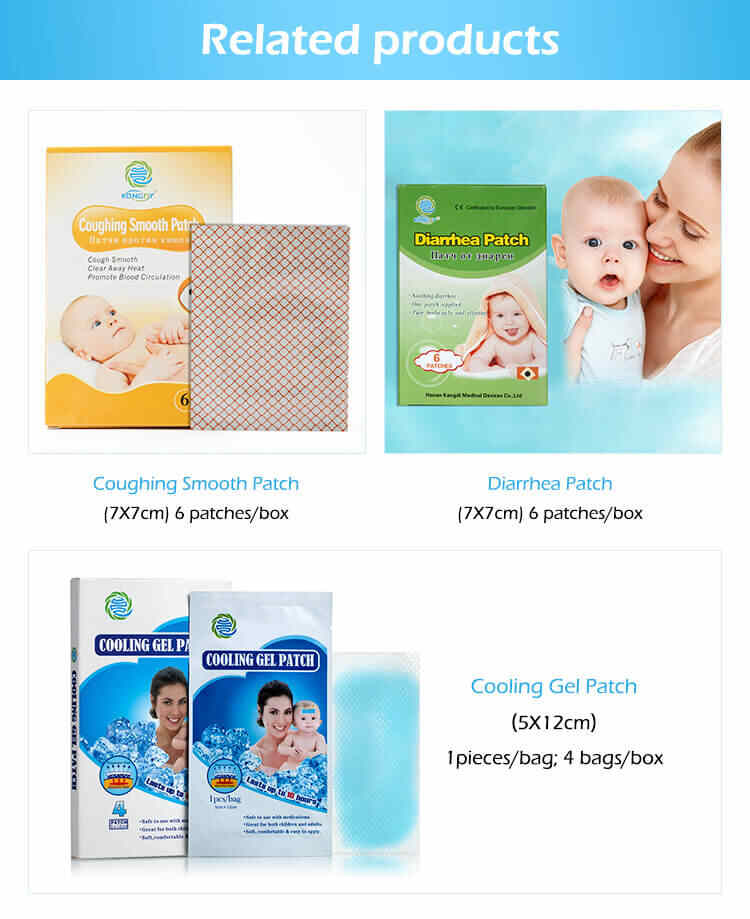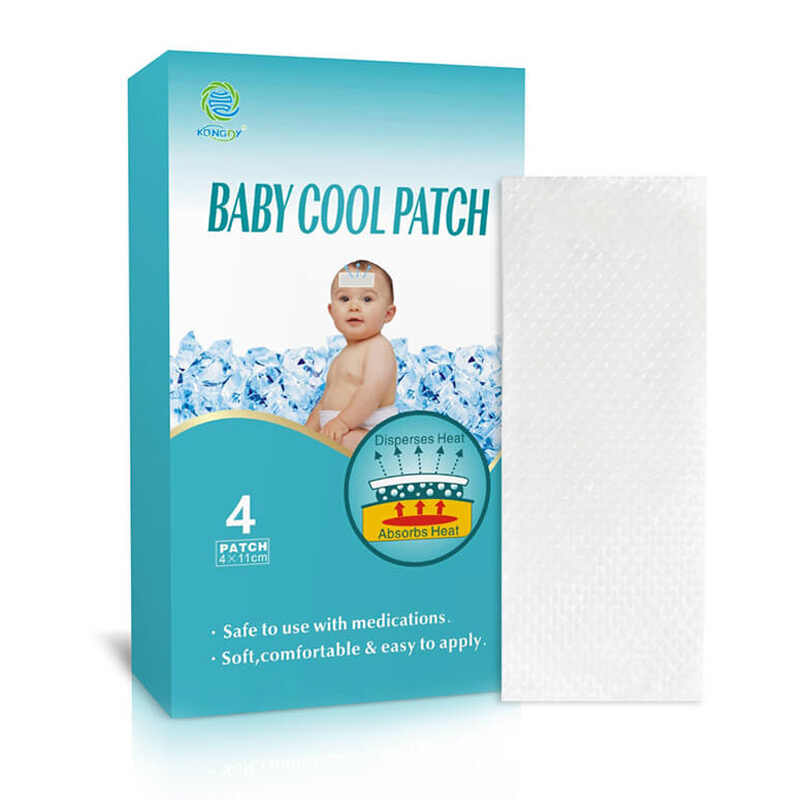What Certifications Should a Menthol Cooling Patches Supplier Have?
In today’s competitive wellness and healthcare market, consumers and brands alike demand high-quality, safe, and trustworthy products. Menthol cooling patches are widely used for fever relief, headaches, and soothing muscle discomfort. With growing global demand, businesses often turn to a reliable menthol cooling patches Supplier or menthol cooling patches Manufacturer to develop Custom menthol cooling patches and Private Label menthol cooling patches.
But with so many suppliers in the market, one critical question arises: What certifications should a menthol cooling patches Supplier have?
Certifications are more than just paperwork. They demonstrate compliance with international standards for safety, quality, and sustainability. They also build trust with buyers and end-users. This article explores the most important certifications a menthol cooling patches OEM or supplier should hold, why they matter, and how they influence your business success.

Why Certifications Are Crucial in Choosing a Supplier
Consumer Safety – Cooling patches are applied directly to the skin. Certifications ensure they meet safety standards and do not cause irritation or harm.
Global Market Access – Many countries require certified products before import, making certifications essential for international trade.
Brand Reputation – Partnering with a certified menthol cooling patches Manufacturer builds trust and credibility for your brand.
Regulatory Compliance – Certifications help avoid costly legal issues and recalls.
Competitive Advantage – Eco-conscious and quality-conscious buyers prefer certified products.
Key Certifications a Menthol Cooling Patches Supplier Should Have
1. ISO 13485 – Medical Device Quality Management System
Essential for suppliers producing cooling patches that may be classified as medical devices.
Ensures a structured system for product design, development, and manufacturing.
A menthol cooling patches Supplier with ISO 13485 demonstrates commitment to safety and regulatory requirements.
2. ISO 9001 – Quality Management System
Applies to general product quality and customer satisfaction.
A menthol cooling patches Manufacturer with ISO 9001 certification shows strong quality control and continuous improvement practices.
3. GMP (Good Manufacturing Practice) Certification
Critical for ensuring hygienic and safe production.
GMP-certified menthol cooling patches OEM factories minimize contamination risks.
Especially important for Custom menthol cooling patches that involve unique formulations.
4. CE Marking (Europe)
Required for products sold in the European Union.
Indicates compliance with EU safety, health, and environmental requirements.
A menthol cooling patches Supplier with CE certification makes exporting to Europe easier.
5. FDA Registration (U.S.)
Necessary for products entering the U.S. market if classified as medical devices.
Ensures compliance with American safety and labeling requirements.
Private label brands targeting U.S. distribution should prioritize FDA-registered suppliers.
6. ISO 22716 – Cosmetics GMP
Applies when menthol cooling patches are marketed as cosmetic or wellness products.
Covers best practices in manufacturing, hygiene, and quality assurance.
A must for Private Label menthol cooling patches in beauty and personal care.
7. Environmental Certifications (ISO 14001, Eco-Friendly Labels)
ISO 14001 demonstrates eco-friendly operations and waste reduction practices.
Sustainability certifications align with global consumer demand for eco-conscious products.
Perfect for brands developing eco-friendly Custom menthol cooling patches.
8. Dermatological Testing and Skin Safety Certifications
Independent lab testing ensures patches are skin-safe, hypoallergenic, and non-irritating.
Helps build consumer trust, especially for Private Label menthol cooling patches marketed to sensitive users such as children.
9. Halal or Vegan Certification (Optional Market Advantage)
Expands market reach in regions or communities with specific lifestyle requirements.
Halal-certified or vegan-friendly menthol cooling patches Supplier options enhance brand inclusivity.
How Certifications Impact Different Business Models
For Custom Menthol Cooling Patches
Certifications like GMP, ISO 13485, and dermatological testing ensure that custom formulations meet both safety and performance expectations.
Working with a certified menthol cooling patches OEM guarantees smoother product development and compliance.
For Private Label Menthol Cooling Patches
CE, FDA, and ISO 22716 certifications help private label brands enter global markets with confidence.
Eco-labels and dermatological testing strengthen product marketing and consumer trust.
For Menthol Cooling Patches Manufacturers and Suppliers
Holding certifications not only opens global distribution but also enhances long-term partnerships with international brands.
A certified menthol cooling patches Supplier is more likely to attract serious buyers seeking reliable production partners.
Challenges Suppliers Face in Certification
High Costs: Obtaining and maintaining certifications requires financial investment.
Time-Consuming Audits: Achieving certifications like ISO 13485 involves rigorous documentation and inspections.
Continuous Updates: Standards evolve, and suppliers must consistently update their processes.
Market Variations: Different regions require different certifications, making global compliance complex.
Despite these challenges, top-tier menthol cooling patches Manufacturers invest heavily in certifications to remain competitive and trustworthy.
Why Brands Should Prioritize Certified Suppliers
Reduced Risk – Minimize liability and compliance issues.
Consumer Confidence – Certification logos and claims boost consumer trust.
International Growth – Certifications open doors to export markets.
Stronger Partnerships – A certified menthol cooling patches OEM is more reliable for long-term collaboration.
Future-Proofing – Certifications prepare brands for upcoming regulations and consumer expectations.
Steps to Verify Supplier Certifications
Request Official Certificates – Ask for recent copies of certifications directly from the supplier.
Check Validity – Ensure certifications are issued by recognized authorities and not expired.
Cross-Verify with Authorities – For FDA or CE, verify registration through official government databases.
Conduct On-Site Audits – If possible, visit the menthol cooling patches Manufacturer to assess compliance.
Work with Trusted OEMs – Partner with an experienced menthol cooling patches OEM to ensure ongoing compliance.
Conclusion
So, what certifications should a menthol cooling patches Supplier have? At minimum, they should hold ISO 9001, GMP, and dermatological testing certifications. For global trade, CE marking and FDA registration are crucial. For eco-conscious and wellness markets, ISO 14001, Halal, or Vegan certifications provide additional benefits.
Working with a certified menthol cooling patches Manufacturer, menthol cooling patches OEM, or menthol cooling patches Supplier ensures product quality, consumer safety, and smoother international expansion. Whether developing Custom menthol cooling patches or Private Label menthol cooling patches, certifications are the backbone of trust and long-term success.
Related Questions and Answers
Q1: Why are certifications important for menthol cooling patches Suppliers?
A1: They ensure product safety, regulatory compliance, and global market access.
Q2: Which certifications are essential for entering the U.S. and EU markets?
A2: FDA registration for the U.S. and CE marking for the EU.
Q3: Do Private Label menthol cooling patches need certifications?
A3: Yes, certifications support brand credibility and compliance in different regions.
Q4: Can a menthol cooling patches OEM help brands with certifications?
A4: Absolutely. OEMs guide brands through certification requirements and ensure compliance.
Q5: Are eco-friendly certifications important for cooling patches?
A5: Yes, ISO 14001 and eco-labels appeal to environmentally conscious consumers and markets.






